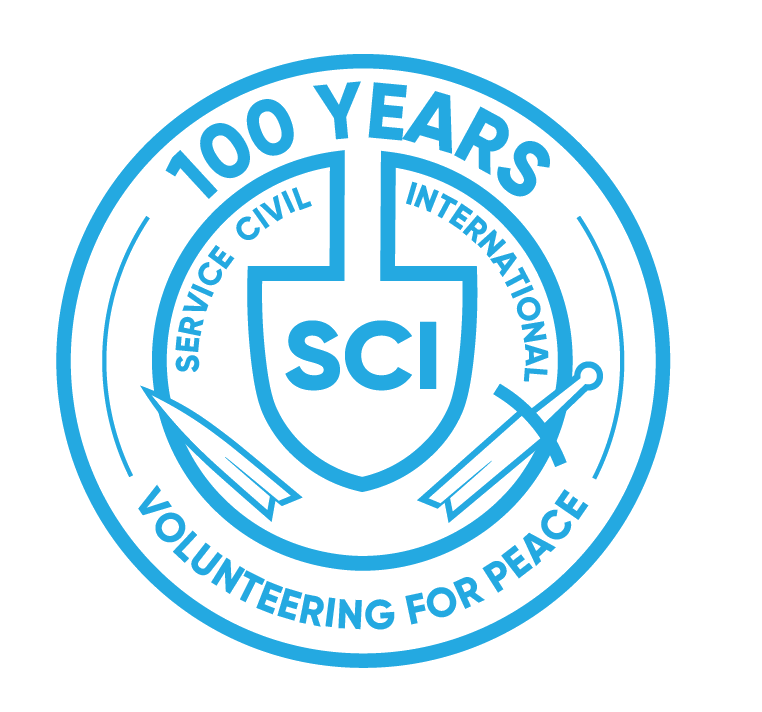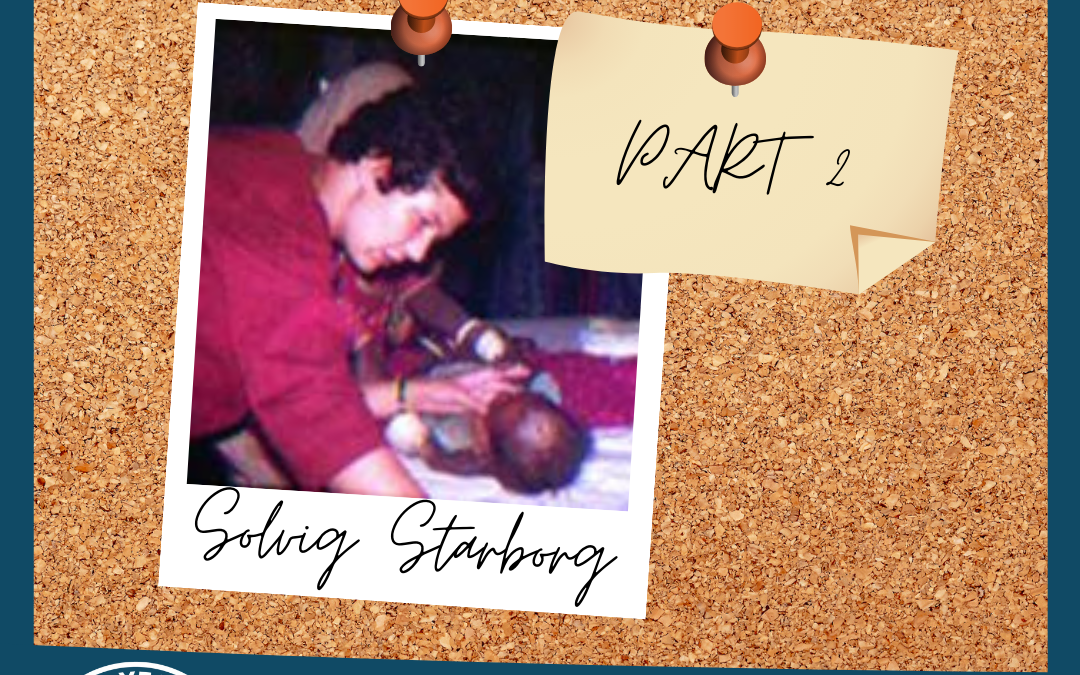22nd February 1971 – first meeting with Valli Seshan
By the second cup of coffee, it felt as if I had known Valli all my life! We seemed to have a lot to talk about! Valli told me about Nangloi Jhuggi Jopri Colony and how SCI needed a nurse there. It sounded very interesting but I only had one month left on my already extended tourist visa! I went to visit Nangloi the next day and met Rik and Liz Rottger with their son Inder. Rik was building the second floor of the dispensary; Liz was helping to run the nursery school. SCI also wanted to start a child health programme with baby-clinic, childhood vaccinations, etc. That would be my field. Liz and I also dreamt about starting sewing and batik classes for the women in the colony. It was all very exciting!
There was one big problem of course, – my visa. Everybody tried; Valli and Major Ramachandra wrote letters and UNICEF was approached to assist but to no avail! The Foreigners’ Registration Office gave a blank “No”! I was advised to leave and apply for a visa outside India. However, by this time I had very little money left and it wasn’t really within my reach. During these uncertain days, I spent a lot of time in Nangloi, participating in weekend workcamps, and getting to know people. Then Bhuppy called me to the office to fill in yet another form that he took to someone in a government office. Suddenly I had permission to stay on, no questions asked! Bhuppy maintained, of course, that it might send us both to prison but he would make sure that we could share a cell! That was fine by me!
I moved out to Nangloi to join the team. The first task was to set up the baby-clinic. My last job in Stockholm had been in an intensive care unit for myocardial infarctions with, at the time, the latest of technology. Not much use in Nangloi, however, I had done paediatrics in my training. It was decided that I should visit baby-clinics in hospitals and see how they were run and organised. I went both to Irwing hospital and Kalawati hospital. I also visited UNICEF, Catholic Relief Service, and The Family Planning Centre to ask for supplies that we needed to start off with. We were advised to apply to Oxfam for funds and were eventually given a grant for 35,000 rupees for equipment, vitamin drops, printed weight charts, and teaching aid for teaching ie nutrition, and family planning.
It was a busy time and there were also work camps both in Nangloi and Shahdara. In the good spirit of SCI, it was a time to try hand on jobs one hadn’t tried before and also to socialise, exchange ideas, and discuss a variety of issues.
Then there were the good times, like when Chandru came from Delhi with his guitar and we would all sit on the roof in the evenings after work and sing Joan Baez or Bob Dylan songs, not to mention, We shall overcome! It wasn’t just the singing but the feeling of friendship which is still with me today.
The break up of East and West Pakistan meant that the Indian army was mobilizing troops to the borders and we watched army vehicles coming past Nangloi travelling east. It was both frightening and depressing. We often talked about it in the evenings, how to stop the madness of war! Then there were the good times, like when Chandru came from Delhi with his guitar and we would all sit on the roof in the evenings after work and sing Joan Baez or Bob Dylan songs, not to mention, We shall overcome! It wasn’t just the singing but the feeling of friendship which is still with me today.
Prior to starting the Baby-clinic, I went out with different Indian volunteers on home visits in the colony. We talked to the women about vaccinations and how these were important. For a lot of these women, it was a difficult concept to understand. Why give an injection to a baby who is well? An injection is something you have when you are ill, to make you better! They were so poor and they would rather have food, money, or a job. Eventually, the baby-clinic started at the beginning of May with the help of the doctor who was already working in the dispensary. Arya had also joined the Nangloi project as a mid-term volunteer and was by that time my regular interpreter and co-worker. In our first clinic, we had 25 babies but could only vaccinate three because all the others were ill and their mothers wanted treatment. We struggled on. Then came Radha to help out, during her holiday from university. She was wonderfully artistic and creative and knew exactly how to communicate with the mothers! She made up her own story of how the injection created a little army in the body so that when the horrible disease came along the army could fight it and the baby wouldn’t get ill! Of course, this made much more sense, and a lot more mothers brought along their babies when they were well! Radha also helped with our school. One day we made colourful paper birds with the children. The birds were attached to strings so that they fluttered in the wind when they hung from the string. The children loved it and it was so good to see them laughing and enjoying themselves. I always felt they had so little childhood and had to grow up so fast.
Returning to Sweden
“It was I who was different!”
I went back to Sweden in December 1971. It was a difficult decision to make and I would have liked to stay longer in India. I was torn between my desire to stay and my parents who wanted me to come back. It was a cold, dark, and miserable winter and it seemed worse than any other I had known. I got a job in Stockholm and connected up with old friends but felt very depressed. Everyone seemed so materialistic and I found that I looked at my own society with different eyes. It was more difficult than the culture shock of arriving in India. I expected India to be different but Sweden to be the same, which it was. It was I who was different!
In the summer there was some relief when I went and did a textile course on the island of Öland in the Baltic. It was somehow very healing to be engrossed in lovely colours and absorbed with weaving them together. However, I was determined to travel more and in 1973 I was accepted on a course in tropical medicine at The Hospital of Tropical Diseases in London.
London
The six-month course in tropical medicine went very quickly and I didn’t feel ready to leave London. I was again involved with SCI, attending meetings, and trying to be supportive of Indian LTVs. It was also good to meet up with the English ex-volunteers who, like me, found it hard to readjust in western society.
In 1975 I went with Oxfam to The Ogaden desert in Ethiopia during the drought and famine. It was a short term emergency relief programme for nomadic Somali people.
It was yet another war zone and another lot of human tragedy.
Working in areas of poverty and other environmental hazards to health made me feel the need to educate myself further. My specialty was really acute medicine so I applied to do the Health Visitor training, which included more on nutrition, psychology, and sociology.
I qualified as a Health Visitor in 1979.
The effect of the SCI experience on my life
My introduction to SCI was really via Bharat Sevak Samaj and Major Ramachandra and the spirit of Gandhi’s teaching. I hadn’t been selected and briefed like the other LTVs but I felt a kinship with the SCI people straight away. It was as if I had found my ‘international family’ and I belonged there. We all wanted to make the world better! It also taught me a lot about cultural understanding, not least looking at my own culture with different eyes.
I still work as a Health Visitor in inner London and in our caseload we have about twenty different ethnic groups. My colleagues are also of a rich ethnic mix. I may visit a Pakistani family, a Polish family, and a Somali family all in a morning’s work. I spend my time communicating with people from different cultures and I think the skills I have developed were first initiated in those early days with SCI. Maybe that is why I have ended up living in London, you can stay here and meet the world!


